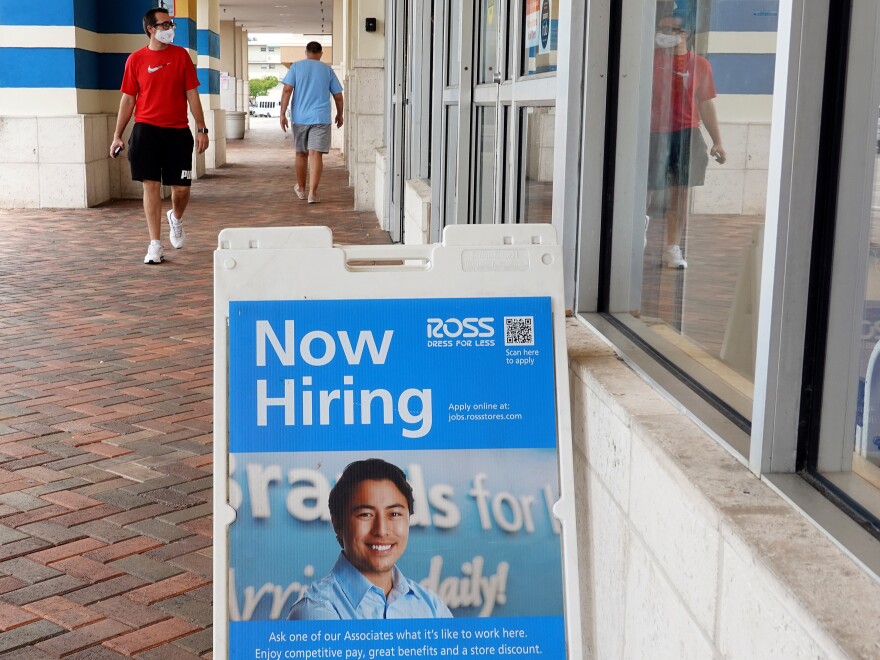Federal Reserve policymakers now think inflation will run hotter than previously expected this year, but the central bank still believes price hikes will moderate in 2022 as pandemic pressures fade.
The inflation projection came at the conclusion of a two-day policy meeting on Wednesday. Members of the Fed's rate-setting committee predicted an annual inflation rate of 4.2% by year's end, up from 3.4% they forecast in June. Inflation is expected to cool to about 2.2% next year.
The Fed's preferred yardstick for inflation is the index of personal consumption expenditures (PCE) compiled by the Commerce Department. The PCE showed an inflation rate of 4.2% in July, the most recent data available.
Inflation is running well above the Fed's long-term target of 2%, and a growing number of Fed policy makers now see a path to raising interest rates as early as next year. Interest rates are currently near zero.
Nine members of the committee suggested it may be appropriate to raise rates as early as next year — up from seven who said so in June. Nine other members of the rate-setting committee don't expect to raise interest rates until 2023 or later.

The Fed also sees slightly slower economic growth
Meanwhile, committee members think the U.S. economy will grow by 5.9% this year, a slight downshift from three months ago, when committee members were forecasting gross domestic product (GDP) growth of 7%. That could be partially offset by somewhat faster-than-expected growth in 2022.
The central bank has been buying at least $120 billion worth of Treasury and mortgage securities each month, in an effort to support the economy and keep long-term interest rates low.
In June, policy makers suggested it could be appropriate to slow that bond-buying program later this year, if the economy continued to improve.
The Fed appears to be sticking to that timetable, despite a disappointing jobs report for August. U.S. employers added just 235,000 jobs last month after adding more than a million jobs in July.

But a lot could change with the Delta variant
The sharp drop in hiring last month coincided with a spike in new coronavirus infections, which likely discouraged people from traveling, eating out and attending live entertainment.
The Fed has made clear that the pandemic could change economic conditions as the highly-infectious Delta variant continues to spread.
"The path of the economy will depend significantly on the course of the virus," the Fed said in a statement. "Progress on vaccinations will likely continue to reduce the effects of the public health crisis on the economy, but risks to the economic outlook remain."
The Fed has promised to provide ample warning before any policy change, in hopes of calming investors. The stock market was already jittery this week over the threat of a debt default by Chinese property developer Evergrande Group, as well as a drawn-out battle in Washington, D.C., over Congressional efforts to raise the federal debt ceiling.
This week's meeting also comes at a sensitive moment for Jerome Powell, whose term as Fed chairman expires in February.
President Biden has to decide whether to reappoint Powell — a Republican who was promoted to the chairman's seat by former President Donald Trump — or go with an alternate candidate as some progressive Democrats have urged him to do. A possible alternative is Lael Brainard, who currently serves on the Fed's Board of Governors.
Copyright 2021 NPR. To see more, visit https://www.npr.org. 9(MDA3OTAzNzgzMDEzMTIyMTYyODIxZDdjYg004))







